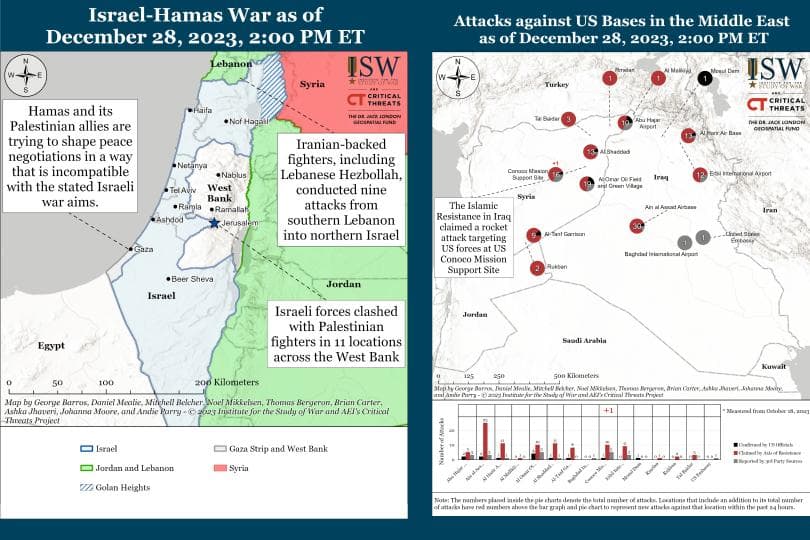ISIS Resurgence Looms!

During a press conference on December 28, Iraqi Prime Minister Mohammed Shia al Sudani revealed that his government is initiating plans to withdraw International Coalition forces from Iraq, a move likely influenced by pressure from Iranian-supported Iraqi militias. This decision to remove U.S. forces could potentially pave the way for ISIS to swiftly regain strength in Syria over the next year to two years, subsequently posing a renewed threat to Iraq.
Simultaneously, Hamas and its allies are attempting to influence peace negotiations in ways that contradict the publicly declared objectives of Israel. Yahya Sinwar, a leader of Hamas in the Gaza Strip, appears to be using Israeli captives as bargaining chips to ensure the continued participation of Gaza's Hamas leadership in the talks, rather than leaving these negotiations in the hands of Hamas's external leaders.
In the Gaza Strip, the Israel Defense Forces are pressing on with clearance operations in the Daraj and Tuffah neighborhoods, including the destruction of three tunnel entrances found in a hospital and a school. Meanwhile, Hamas and the Palestinian Islamic Jihad are actively resisting Israeli advancements in Bureij, and Palestinian militias are defending against Israeli clearance operations in Khan Younis. Additionally, Palestinian factions have launched three indirect fire attacks from the Gaza Strip into southern Israel.
Clashes between Israeli forces and Palestinian fighters have erupted in 11 locations across the West Bank. Moreover, Iranian-backed forces, including fighters from Lebanese Hezbollah, have launched eight attacks from southern Lebanon into northern Israel.
The Islamic Resistance in Iraq, a coalition of Iranian-backed Iraqi militias, has claimed responsibility for several attacks across the Middle East, including a rocket strike aimed at U.S. forces stationed at the US Conoco Mission Support Site in northeastern Syria.


































